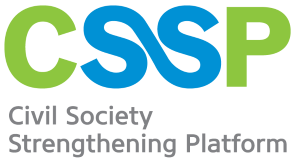Marija Petronijević and Women’s Network of Southwest Serbia submitted a report to GREVIO about the implementation of 3 chapters of the IC

19th of February 2019: The report was prepared by Marija Petronijevic, program director of the Fenomena Association, which coordinates the work of the Women’s Network of Southwest Serbia at the invitation of the GREVIO Group, and the report included an analysis of the implementation of the second, third and fourth chapters of the Convention.
Analyzing the second chapter on integrated policies and data collection, the independent report states that there is no national action plan to ensure that the budget is not planned in accordance with the provisions of the Convention and that there is no good support and cooperation with non-governmental organizations dealing with this topic. There are no national surveys on the representation of partner violence, and there are no official data on gender-assaulted domestic violence.
In chapter three on prevention, the analysis says that there is no measurement of the change of social and cultural patterns, nor the empowerment of women. When it comes to awareness-raising campaigns – there are no issues such as violence against women and gender equality in the plan and program of all levels of education, there is no ongoing training for professionals, there are no data on the usefulness of programs aimed at perpetrators of gender-based and sexual violence, there is no participation of the civil sector and the media in the creation and implementation of policies, as well as in setting internal standards in the fight against violence against women.
Regarding the legal framework and the implementation of the new Law on the Prevention of Domestic Violence, the implementation of which began in the summer of 2017 and which foresees the existence of a coordination group, the report says that it narrows the multisectoral response to violence and that there is no cooperation with non-governmental organizations . A woman with an experience of violence is not sufficiently informed about the process, available support services or legal measures. The individual protection plan for women who survived violence is inconsistent, there is no constant legal or psychological support, there is no financial support, housing support, education and employment assistance, there is no legal assistance for victims who want to address international protection mechanisms. The state of Serbia does not provide support in providing specialized support services for women, and existing shelters for women victims of violence make up only 35% of real needs.
When it comes to the establishment of a national SOS telephone, Petronijevic has done a case study that shows that the principles of confidentiality and anonymity are violated, there are no specific services for victims of sexual violence, nor specific measures for encouragement by witnesses or professionals.
____________________________________________
Извештај је припремила Марија Петронијевић, програмска директорка Удружења Феномена, које координира радом Мреже жена југозападне Србије, на позив ГРЕВИО групе, а извештај је обухватио анализу примене другог, трећег и четвртог поглавља Конвенције.
Анализом другог поглавља које се тиче интегрисаних политика и прикупљања података, у независном извештају се каже да не постоји национални акциони план за то, да се буџет не планира у складу са одредбама конвенције и да не постоји добра подршка и сарадња са невладиним организацијама које се баве овом темом. Не постоје национална истраживања о заступљености партнерског насиља, а нема ни званичних података о породичном насиљу разврстаних по полу.
У поглављу три које се односи на превенцију, анализа каже да не постоји мерење промене друштвених и културних образаца, као ни оснажености жена. Када су у питању кампање подизања свести јавности – у плану и програму свих нивоа образовања не постоје теме попут насиља над женама и родне равноправности, нема континуираних обука за професионалце, не постоје подаци о корисности програма намењених починиоцима родно-заснованог и сексуалног насиља, не постоји учешће цивилног сектора ни медија у креирању и имплементацији политика, као ни у постављању интерних стандарда у борби против насиља над женама.
Када је у питању законски оквир и примена новог Закона о спречавању насиља у породици, чија је примена почела у лето 2017. и који предвиђа постојање групе за координацију, у извештају се каже да он сужава мултисекторски одговор на насиље и да нема сарадње са невладиним организацијама. Жена са искуством насиља није довољно информисана о процесу, доступним сервисима подршке ни правним мерама. Индивидуални план заштите за женне које су преживеле насиље је недоследан, нема константне правне ни психолошке подршке, изостаје и финансијска подршка, подршка становања, образовања и помоћ у запошљавању, не постоји правна помоћ за жртве које желе да се обрате међународним механизмима заштите. Држава Србија не обезбеђује подршку у обезбеђивању специјалистичких сервиса подршке за жене, а постојећа склоништа за жене жртве насиља чине само 35% од реалних потреба.
Када је у питању успостављање националног СОС телефона, Петронијевић представља студију случаја која показује да су нарушени принципи поверљивости и анонимности, нема спецјализованих услуга за жртве сексуалног насиља, ни специфичних мера за охрабривање од стране сведока или професионалаца.
